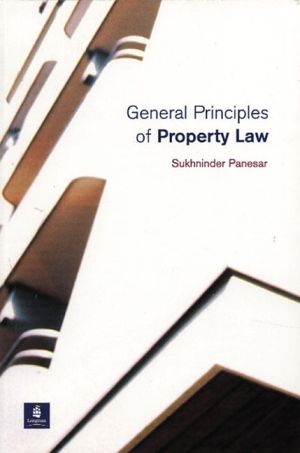
This innovative new book examines some of the fundamental principles of property law, starting with the premise that understanding the subject is a difficult challenge for many students. A number of factors contribute to its complexity; one important factor is the 'compartmentalisation' of the various branches of property law without recourse to an explanation of the basic ideas and principles of property.
The author argues that the law of property, and its various branches, can become a more accessible subject if students are exposed to the idea and nature of property and the very basic principles that govern property relationships.General Principles of Property Law begins with an examination of the legal idea of property, with the objective of getting the student to think about property as a right rather than a thing. The purpose is to aid the student in understanding the function of property as the governance or regulation of rights in things, rather than things themselves. At the initial stage of discussion, the student's mind is focused into thinking why the law should concern itself with protecting rights in things.
The book continues with an examination of how property lawyers classify property, in particular the distinction between real and personal property and legal and equitable property. As well as examining important concepts such as ownership, possession and title, the book examines the methods by which property rights are acquired. Other important themes in the book include:-